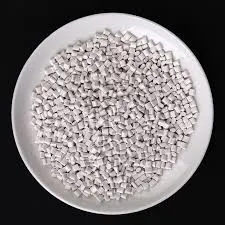Chemical-Free Cooling Tower Water Treatment
As industries and infrastructure facilities expand, the importance of efficient and sustainable water treatment methods becomes increasingly apparent. One critical component of this is the cooling tower, which plays a vital role in regulating temperatures in various industrial processes. However, conventional cooling tower water treatment often relies on chemical additives to prevent scaling, corrosion, and biological growth. In recent years, there has been a significant shift towards chemical-free cooling tower water treatment methods that offer numerous benefits for both the environment and operational efficiency.
The Challenges of Traditional Chemical Treatments
Traditional chemical treatments used in cooling towers typically include biocides, algicides, and scale inhibitors. While these chemicals can effectively control biofouling and scaling, they come with a suite of challenges. Not only do they pose potential health hazards to workers and the surrounding environment, but they also require stringent safety measures and regulatory compliance. Additionally, chemical treatments can lead to the buildup of residuals that may need to be periodically removed, increasing operational costs and downtime.
Advantages of Chemical-Free Solutions
1. Environmental Sustainability Chemical-free water treatment methods often utilize natural processes or physical technologies to control scaling and biological growth. For instance, technologies such as ultraviolet (UV) light, ultrasonic waves, and ozone are effective at reducing microbial populations without introducing harmful chemicals into the system. This shift not only reduces the environmental impact but also supports compliance with increasingly strict environmental regulations.
2. Cost Efficiency Though the initial investment in chemical-free systems may seem higher, the long-term operational savings can be significant. Reducing the need for chemical purchases, storage, and handling can lead to lower overall costs. Additionally, fewer shutdowns for maintenance due to chemical-related issues can enhance the efficiency of cooling tower operations.
3. Improved Water Quality Chemical-free treatments often lead to improved water quality. By minimizing chemical residuals, these systems can maintain a more consistent water quality, which enhances the efficiency of heat exchange processes. Cleaner water in cooling towers can also lead to increased equipment lifespan, as it reduces the corrosive effects that harmful chemicals can have on machinery.
chemical free cooling tower water treatment

4. Health and Safety The elimination of hazardous chemicals improves the safety conditions for workers involved in the maintenance and operation of cooling towers. This not only lowers the risk of chemical-related incidents but also promotes a healthier work environment overall.
Types of Chemical-Free Treatment Technologies
Several innovative technologies are being employed to achieve chemical-free cooling tower water treatment
- Ultrasonic Treatment This technology uses high-frequency sound waves to disrupt the formation of scale and reduce biofilm buildup. The sound waves create microscopic bubbles that implode, generating localized high temperatures and pressures that dislodge unwanted deposits.
- UV Disinfection Ultraviolet light effectively kills bacteria, viruses, and algae without the use of harmful chemicals. Implementing a UV system allows cooling towers to ensure the water remains biologically clean while minimizing the risk of harmful byproducts commonly associated with chemical disinfection.
- Ozone Generation Ozone is a powerful oxidant that can be used to control microorganisms in cooling tower water. Since ozone quickly decomposes back into oxygen, it offers a chemical-free solution to maintaining water quality, all while providing effective disinfection.
Conclusion
The adoption of chemical-free cooling tower water treatment solutions represents a significant advancement toward more sustainable industrial practices. By reducing reliance on harmful chemicals, industries can lower operational costs, enhance water quality, and ensure a safer working environment. As technology continues to develop, the transition to more environmentally friendly methods is set to reshape the landscape of cooling tower operations, promoting sustainability and operational efficiency across the board. Embracing chemical-free solutions not only ensures compliance with current regulations but also sets the stage for smarter and greener industrial practices in the future.

